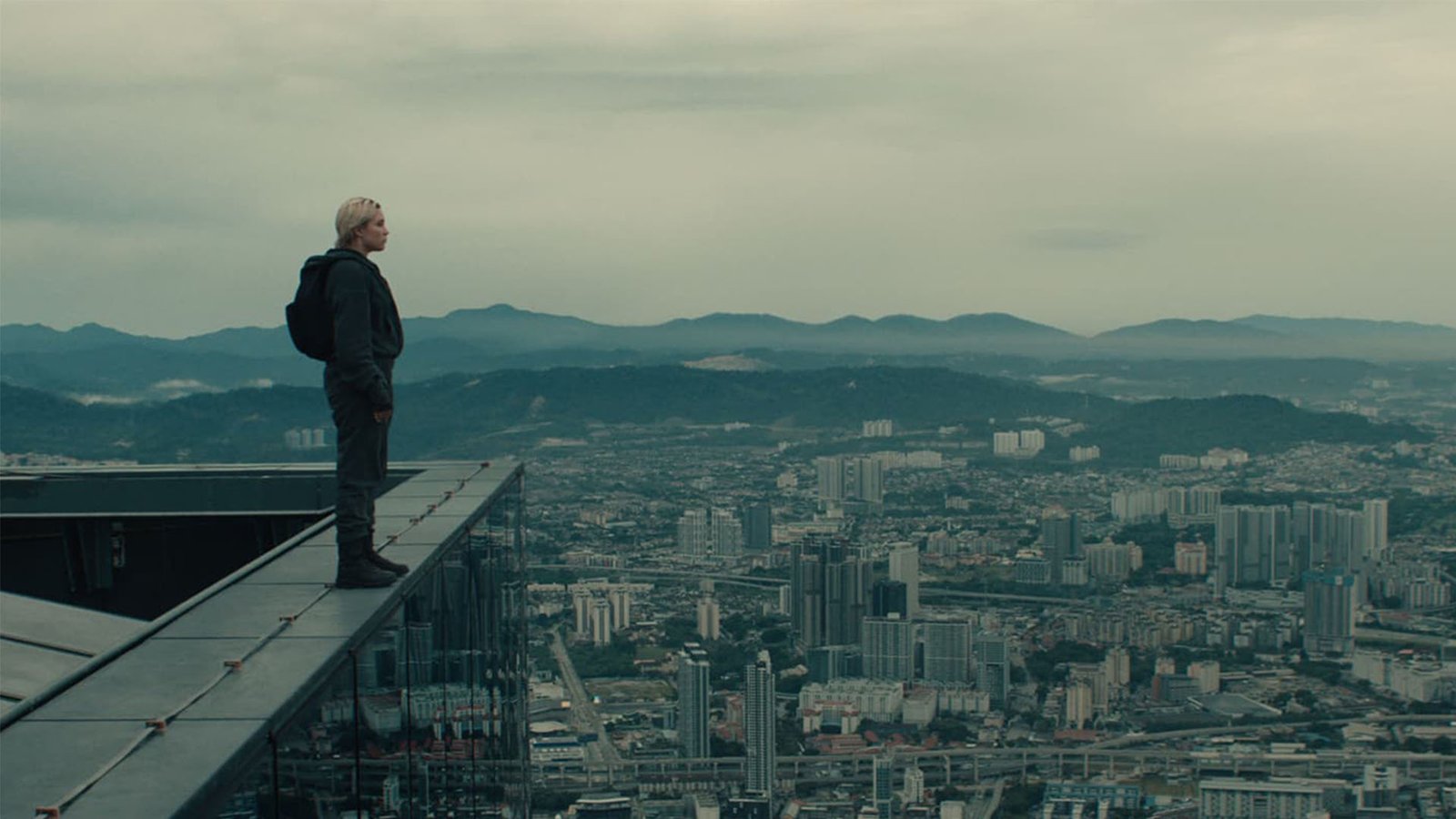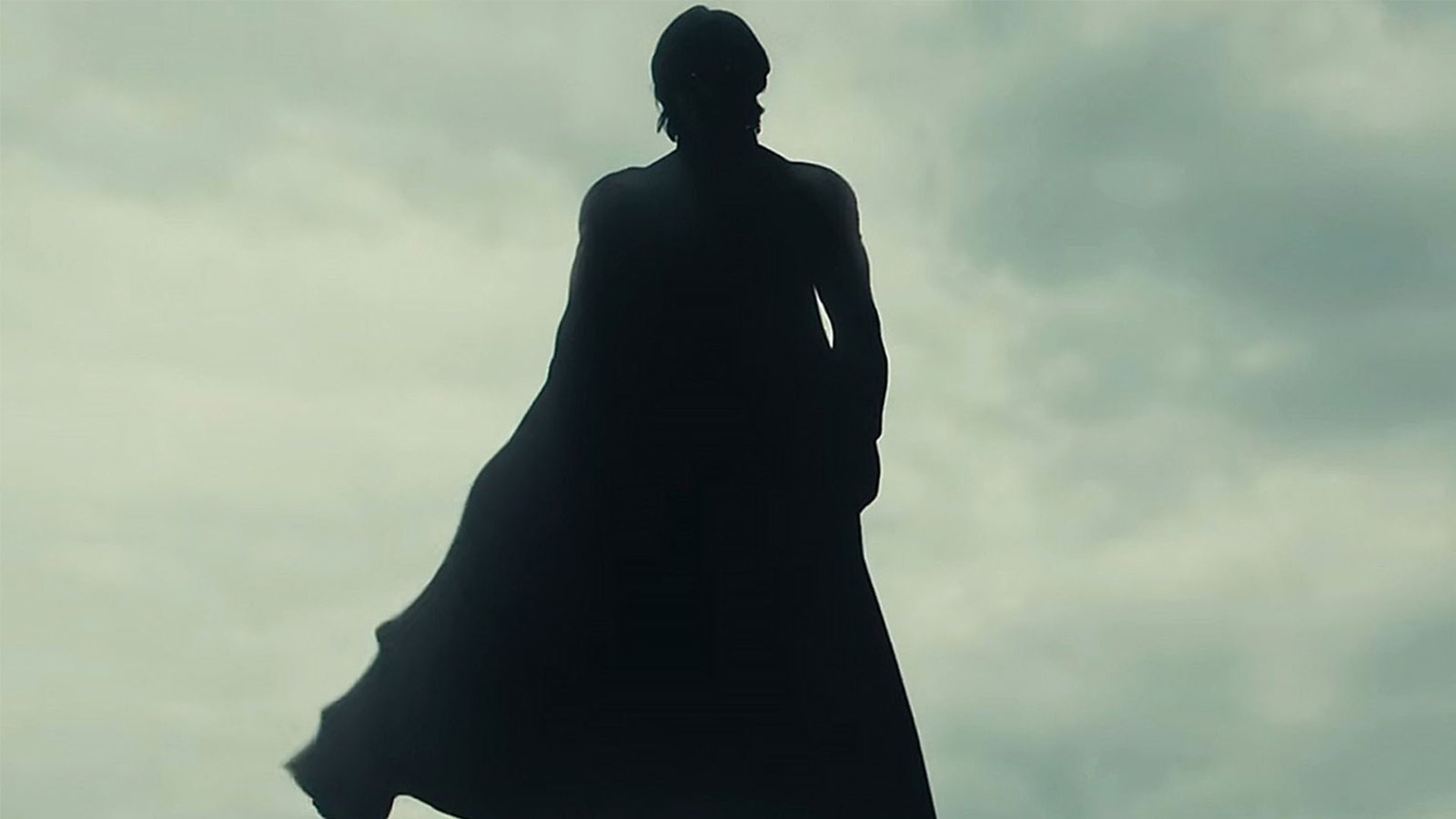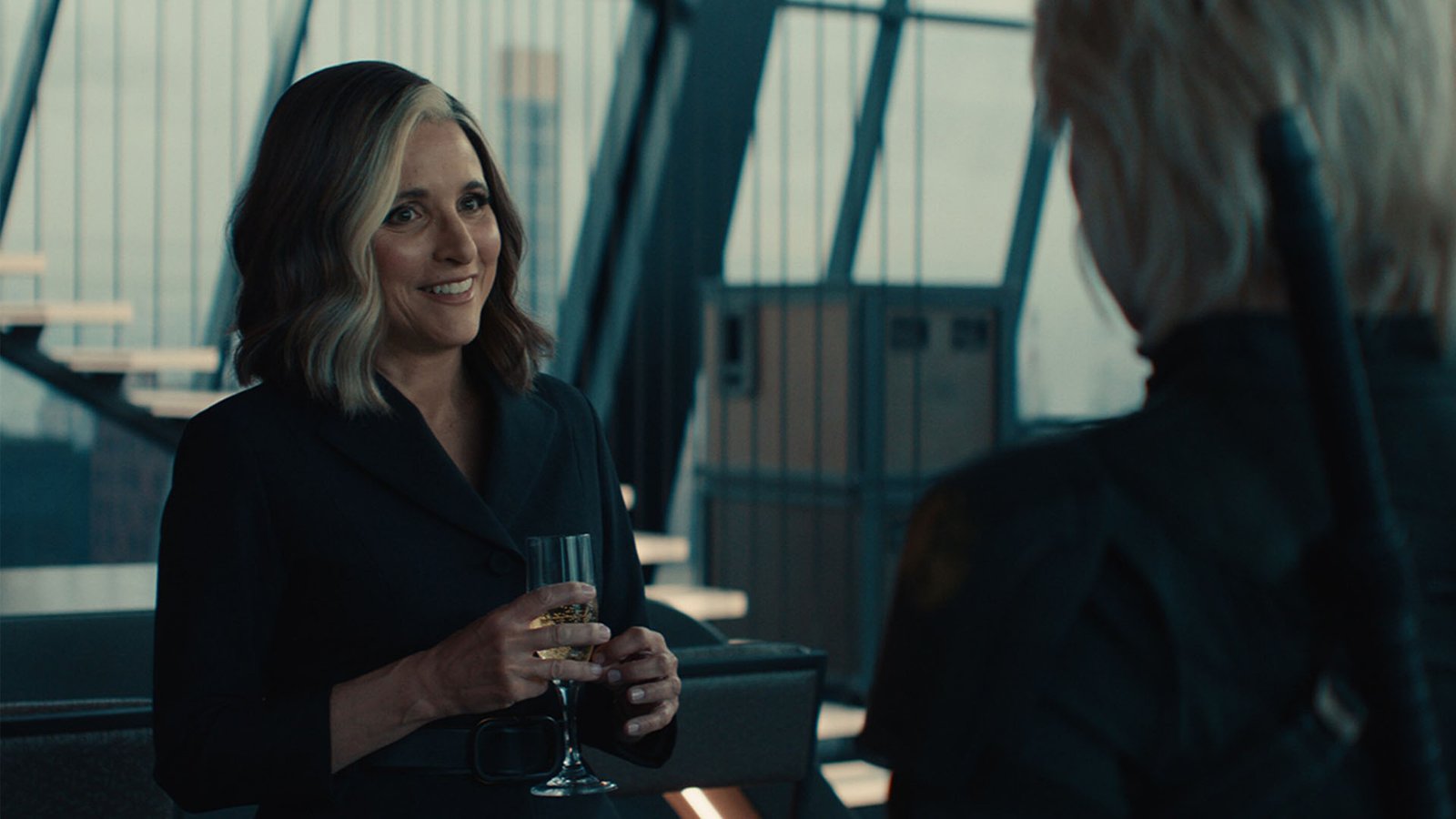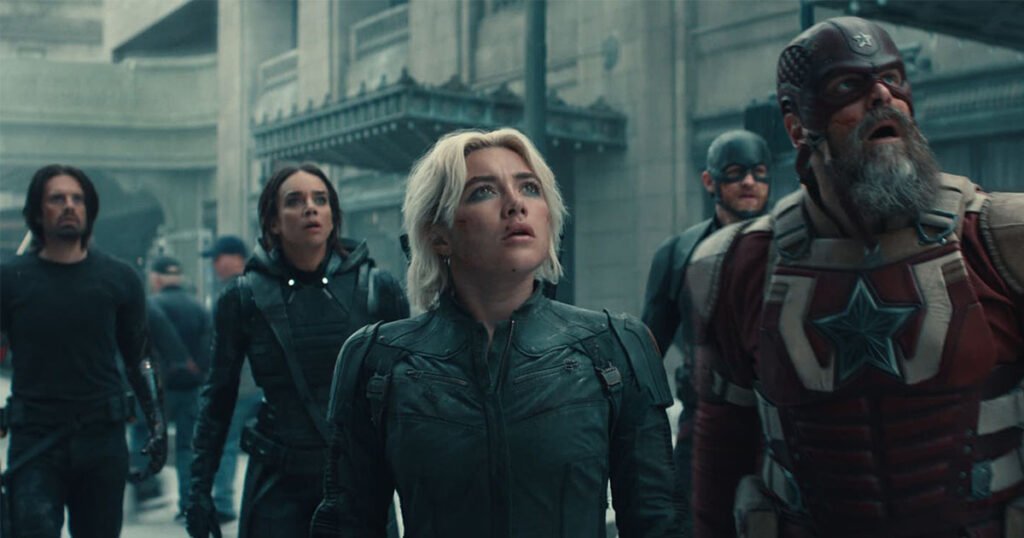“There’s something wrong with me.” The top executives and team of creatives behind Marvel Studios’ Thunderbolts* could very well be talking about the Marvel Cinematic Universe at large and its troubled last few years in the movie’s opening scene.
With the Avengers nowhere to be found and the public gradually turning on superheroes outside of massive names like Deadpool & Wolverine, one has to wonder whether there was an interest in a B team of nobodies and former heroes fallen from grace.
The phase capper’s writing duo – Black Widow’s Eric Pearson and BoJack Horseman’s Joanna Calo – swung for the fences with this one. By putting aside a need for weightless spectacle and universe-building that, for the most part, stopped being anchored in strong character arcs and genuine chemistry long ago, the final script instead focuses on who these ‘failures’ are, what they can do to redeem themselves, and why they must hold Earth-616’s fort as best as they can until things go back to normal (if there’s such a thing).

For anyone who’s been following not only the MCU, but also the news and press surrounding it, the subtext alone is enough juice to make Thunderbolts* a far more compelling take on Marvel characters than anything since James Gunn said goodbye to the House of M with Guardians of the Galaxy Vol. 3 (2023). But the positives don’t end there. Jake Schreier (Beef, the Emmy-winning show you need to get on with) somehow also managed to navigate the treacherous waters of post-pandemic Disney and Marvel Studios. There’s a dark soul to this movie, a beating heart. It not only adds to the (very restrained) spectacle and traditional quips, but eventually, it engulfs the whole thing.
Overtly, this is a movie about depression. Iron Man 3 already dealt with anxiety in order to push Tony Stark forward as he dealt with a manufactured war on terror. Almost the entire first hour of Avengers: Endgame was about grief and Earth’s Mightiest Heroes feeling impotent after the most crushing defeat imaginable. A good chunk of Doctor Strange in the Multiverse of Madness focused on how power and selfishness corrupt, leading to a pretty dark ending. Marvel is no stranger to producing spectacles that pack a punch and say important things. There’s a reason why they dominated the big ‘popcorn entertainment’ conversation for more than a decade. In a way, the MCU was the most expensive and exciting soap opera you could think of.
Of course, it’s hard to muster up Avengers levels of excitement for yet another group of misfits we don’t know much about. Besides Florence Pugh’s Yelena Belova and, to a much lesser degree, David Harbour’s Alexei Shostakov aka the Red Guardian, this iteration of the Thunderbolts had big ‘we simply couldn’t assemble anything better’ vibes after two entire phases of many different storylines not coming together in any meaningful way. The attachment to each character, new or veteran, has been inversely proportional to the number of them introduced with each new project. It must be said there have been exceptions: Everyone loves Spider-Man and Deadpool, for example, but how do you get to Doomsday and Secret Wars when everyone is just sort of around but not really?

One answer (that may or may not be right) is shamelessly mining nostalgia with Robert Downey Jr. as Doctor Doom and almost the entire Fox X-Men cast being brought back from oblivion. The more uphill path (but better long-term investment) is returning to the basics of memorable blockbuster filmmaking: pyrotechnics and CG-fueled action sequences aside, people regularly showed up for these movies because they enjoyed spending time with the characters.
Everyone involved in making Thunderbolts* was seemingly conscious of the MCU’s recent shortcomings and, more importantly, knew how to fix most of them. It’s a confident movie, not just a product or a small step towards another event which may or may not shake the industry: Schreier’s direction is well-defined and his voice can be heard through the noise and unavoidable exposition; the cast worked with a script which has meat on its bones… Mind you, this isn’t Joss Whedon’s Avengers, but I’d say a two-hour flick which makes me give a shit about Ghost from Ant-Man & The Wasp deserves some serious praise.
Perhaps the most convincing move arrives near the end of the ride, when the movie gets into a groove of openly discussing unhappiness in a genuinely human manner and even goes into the prickly matter of suicide as the Void – writers who use subtext are cowards – begins to consume New York, leaving nothing but a shadow of its citizens behind. Its powerful imagery leads to even more powerful exchanges and a final act that eschews the modern superhero power fantasy’s trappings in favour of a conclusion about empathy and sharing the burden of trauma and unhealed wounds.

As the credits rolled on Thunderbolts* and we learned about the asterisk’s whole deal, I couldn’t really yell out loud “We’re back!” after just one old-fashioned winner, but much like Lewis Pullman’s Robert ‘Bob’ Reynolds, we might have just been saved from the brink of giving up on this chaotic world. Here’s hoping the First Family can keep our spirits up this summer with more than just retro aesthetics.
Thunderbolts* is now screening in theatres.
SavePoint Score
Summary
Thunderbolts* questions its existence and role within the larger MCU while dealing with sensitive topics to ironically become the most relevant and fun big-screen Marvel entry in a while.

